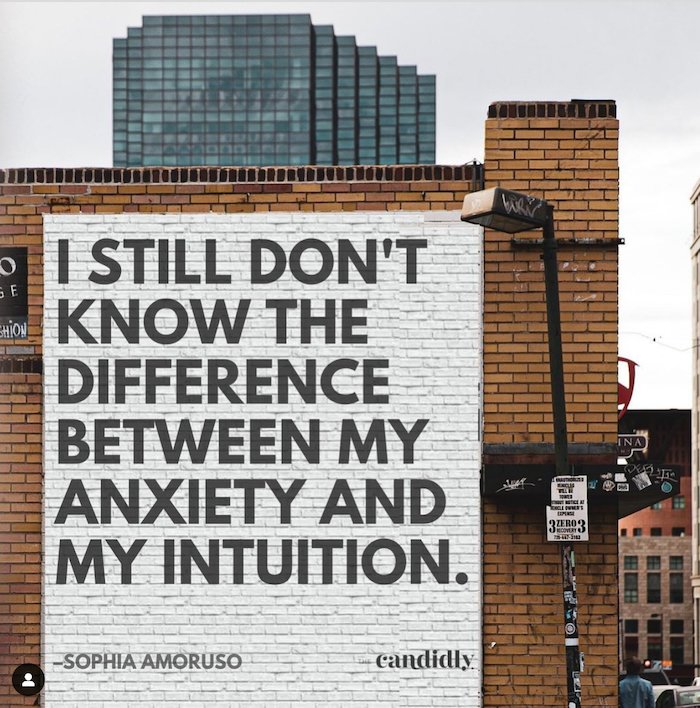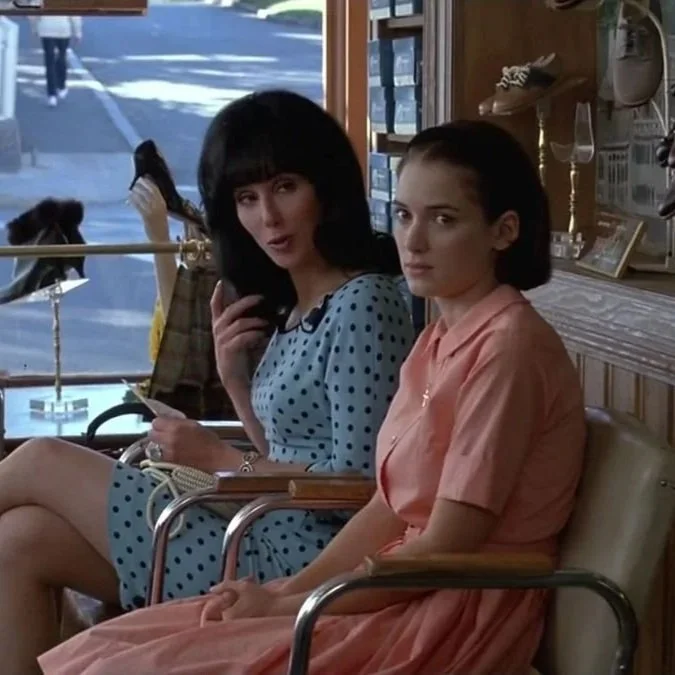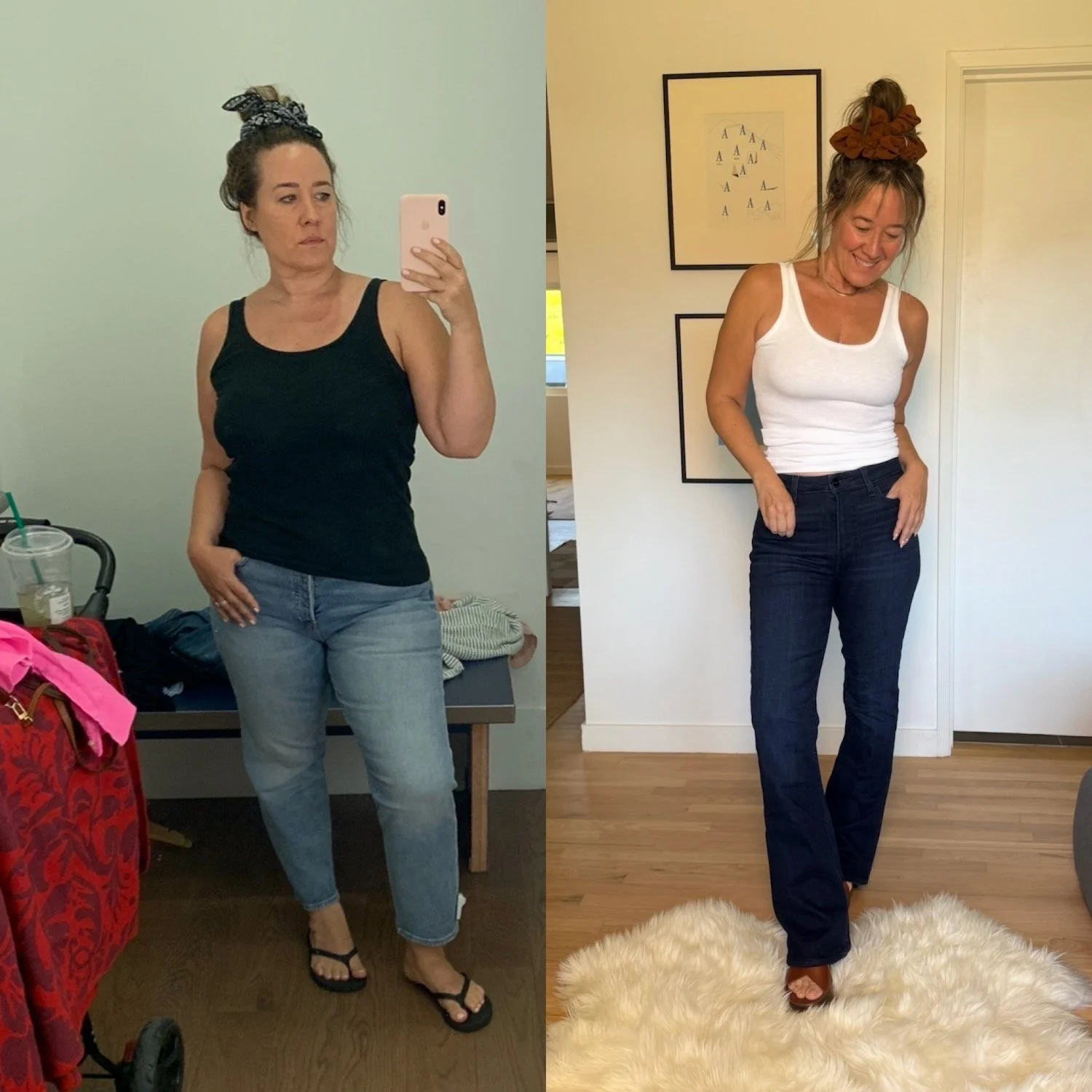A Psychiatrist Told Us 7 Ways To Finally Conquer Our Constant, Life-Ruining Anxiety
Anyone else sick of the doomsday soundtrack playing in their heads at all times? Anyone?
by The Candidly Team
If living on this planet at this exact moment has made us really good at anything, it’s rationalizing our anxiety.
Like isn’t it perfectly reasonable to “avoid crowds?” Save money by not flying anywhere? Sit at home our 27th evening in a row because we maybe feel an itch in our throat? Or stay up til 2AM frantically researching the least “toxic” brand of pillowcase?
I mean we’re only three years out from having washed our literal groceries.
So yeah, we’re still a little…off.
But there’s also a part of us that knows this isn’t the whole story. And that living with the tangled torment that is anxiety buzzing through our veins so much of the time is really not the way we want to live.
It’s not serving us. Or the ones we care about. Or even the responsibilities we believe to be creating it.
But what can we do about our anxiety? For real. Forever.
Deep down, we know there has to be a better way of dealing with our chronic and crazy-making fear response than just trying to “balance our time” or bulldoze tasks on our to-do list. Which is exactly why we sought the expertise of psychiatrist and author of The Anatomy of Anxiety Dr. Ellen Vora.
She believes in a “paradigm shift” in how we understand anxiety, treating it as a “whole body” problem that we can hit from all angles…as opposed to exclusively a “brain condition” where we wind up mainly scrambling to treat symptoms.
“Anxiety is not the result of a genetic chemical destiny. It has a root cause. That root cause is either physical imbalance or a psychospiritual unmet need,” said Vora. “We would do well to identify the root cause of our mental health issues, address it at that level, and experience relief.”
And so, we asked her to tell us how to do exactly that.
1. What is actually happening when we get anxiety? Is it just overwhelm?
There are so many different pathways to anxiety. Oftentimes, it is a stress response occurring in the body. This is where our sympathetic nervous system and stress hormones like cortisol and adrenaline mobilize the features of a stress response, which can include:
An increase in heart rate
Rapid shallow breathing
Muscle tension, especially in places like the jaw
Changes to the state of our digestive tract.
Of course, this is accompanied by the brain telling us a narrative that we have something to be worried about, whether that centers around themes of uncertainty, control, or simply anticipating negative consequences or being unable to handle a potential situation in the future.
2. You've talked about mistakenly thinking of anxiety as only being a “neck up problem?” What does that mean? What are we getting wrong about what causes us to feel anxious and therefore, how we can best deal with it?
We have all come of age with the chemical imbalance theory of mental illness. This tells us that our mental health is the result of a genetic chemical imbalance. It suggests that, if we're depressed or anxious, this must mean we have low serotonin. But genes are only ever a predisposition, and this theory is a myopic and inaccurate view of mental health.
If we expand our understanding to a more comprehensive list of the evidence-based determinants of mental health, this includes:
How we're sleeping
How we're feeding ourselves
Whether we're moving our bodies
The degree to which we have inflammatory molecules coursing through our veins
Whether we have community or a sense of meaning and purpose in our lives
In other words, anxiety is not all in our head. When we focus exclusively on genes, this implies that our mental health issues are a fixed trait--a destiny. And that is our least hopeful narrative about mental health.
If the available treatments don't work for us (which is common), we feel broken, and we can begin to despair. When we shift our focus to the list of environmental influences that impact our mental health, it shows us that we have reason to feel empowered and hopeful about our mental health.
3. Are there any symptoms that might not look like what we traditionally know anxiety to be?
Some people experience their anxiety as:
Digestive disturbances
Muscle tension
Avoidance of certain anxiety-provoking situations
4. Given how overpowering anxiety can feel, would you say it's more useful to go after its cause or its effect?
Ideally, we approach anxiety from every angle. My personal preference is to address the causes of anxiety, in order to prevent and often eliminate unnecessary suffering. I think there is a lot of low hanging fruit here.
There are several underappreciated aspects of modern life that make us all quite anxious. Examples include:
Blood sugar swings
Caffeine sensitivity
Sleep deprivation
Alcohol
Our relationship to social media
That said, we need some way of handling our anxiety once we've passed what I call "the point of no return." That's where we have different exercises to help ground us in the present moment and discharge excess adrenaline in the body.
5. How can we remember, in the moment, while full of anxiety from pain or stress or triggers, that what our anxiety is telling us isn’t true? Is this a muscle we can build?
It certainly is a muscle that we can build, but I try to set my patients up for success by providing them with an avoidable anxiety inventory. This list can help remind us of possible causes of our anxiety in that moment of peak anxiety (and actionable ways we can reduce the anxiety).
There is also a role for mindfulness meditation, which generally helps us get better at bearing witness to our state of being, and it gives us space to get curious about the possible root causes.
But I don't think it's necessarily helpful to say that our brain is lying to us. Our brain is doing what brains do--it's a meaning maker, and it's telling us a story to make sense of what is first and foremost a physical sensation.
It's merely a retrofitted justification. So it can be helpful to validate your thoughts. You can say to yourself, "I'm feeling anxious right now, and my brain is telling me it's because of work. That's valid. Work is stressful. Aaaaand, maybe I need a snack right now."
Saying that anxiety has a physical basis and addressing those states of imbalance does not invalidate (or solve!) our very real stressors, but it certainly makes us more resilient in the face of them.
6. What are 5 specific suggestions you have for someone who wants to manage their anxiety?
Start with avoidable anxiety:
This is the anxiety that exists in the physical body, caused by a stress response. Good strategies to reduce avoidable anxiety are:
Keep blood sugar stable (eat more protein and healthy fats, err on the side of avoiding added sugars, take a handful of nuts or a spoonful of almond butter to prevent a blood sugar crash)
Gradually taper down the amount of caffeine you consume
Take a few more nights off from drinking
Supplement with magnesium glycinate at bedtime
Keep the phone out of the bedroom
Aim for an earlier bedtime
Complete the stress cycle at the end of the day by dancing or shaking for a few minutes.
Tune in to our true or purposeful anxiety:
Once we've cleared the air and our physiology is no longer pinballing in and out of unnecessary stress responses, we can tune in to our true anxiety, which is our purposeful anxiety.
This is not something to pathologize. In fact, true anxiety is not what's wrong with us--it's what's right with us when we're able to viscerally connect to what's wrong in the world. This can pertain to our personal lives, our communities, or the world at large.
This is our inner compass nudging us, reminding us that there's some area in our lives that is out of alignment.
We want to practice slowing down, getting still, and listening to the clarion call from our true anxiety. It's usually nudging us, like an electric fence, to course correct and get back into alignment. When we allow this to fuel purposeful action, we don't feel quite so anxious anymore; we feel imbued with purpose.
7. Are there certain techniques you've found most useful for coping when anxiety starts to take over on a physical level?
Movement and nature are both excellent medicine for anxiety in the moment that things begin to spiral. I believe tears also have a role in ensuring that we're feeling our feelings and metabolizing everything that we carry from the stressors in our lives.
This article is for informational purposes only. It is not intended to be used in place of professional advice, medical treatment, or professional care in any way. This article is not intended to be and should not be a substitute for professional care, advice or treatment. Please consult with your physician or healthcare provider before changing any health regimen. This article is not intended to diagnose, treat, or prevent disease of any kind. Read our Terms & Conditions and Privacy Policy.












